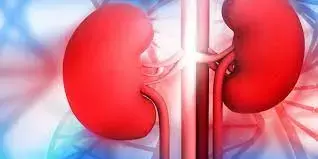- Home
- Medical news & Guidelines
- Anesthesiology
- Cardiology and CTVS
- Critical Care
- Dentistry
- Dermatology
- Diabetes and Endocrinology
- ENT
- Gastroenterology
- Medicine
- Nephrology
- Neurology
- Obstretics-Gynaecology
- Oncology
- Ophthalmology
- Orthopaedics
- Pediatrics-Neonatology
- Psychiatry
- Pulmonology
- Radiology
- Surgery
- Urology
- Laboratory Medicine
- Diet
- Nursing
- Paramedical
- Physiotherapy
- Health news
- Fact Check
- Bone Health Fact Check
- Brain Health Fact Check
- Cancer Related Fact Check
- Child Care Fact Check
- Dental and oral health fact check
- Diabetes and metabolic health fact check
- Diet and Nutrition Fact Check
- Eye and ENT Care Fact Check
- Fitness fact check
- Gut health fact check
- Heart health fact check
- Kidney health fact check
- Medical education fact check
- Men's health fact check
- Respiratory fact check
- Skin and hair care fact check
- Vaccine and Immunization fact check
- Women's health fact check
- AYUSH
- State News
- Andaman and Nicobar Islands
- Andhra Pradesh
- Arunachal Pradesh
- Assam
- Bihar
- Chandigarh
- Chattisgarh
- Dadra and Nagar Haveli
- Daman and Diu
- Delhi
- Goa
- Gujarat
- Haryana
- Himachal Pradesh
- Jammu & Kashmir
- Jharkhand
- Karnataka
- Kerala
- Ladakh
- Lakshadweep
- Madhya Pradesh
- Maharashtra
- Manipur
- Meghalaya
- Mizoram
- Nagaland
- Odisha
- Puducherry
- Punjab
- Rajasthan
- Sikkim
- Tamil Nadu
- Telangana
- Tripura
- Uttar Pradesh
- Uttrakhand
- West Bengal
- Medical Education
- Industry
Remdesivir safe for hospitalized COVID-19 patients with severe kidney dysfunction: JAMA

Antiviral remdesivir (Veklury) appeared safe for hospitalized COVID-19 patients with severe kidney dysfunction according to a recent study published in the JAMA Network Open.
Remdesivir is a broad-spectrum antiviral that reduces hospitalization and may decrease mortality among noncritically ill inpatients with COVID-19. Remdesivir is not recommended for use in patients with an estimated glomerular filtration rate (eGFR) less than 30 mL/min1.73 m2 owing to the presence of excipients3 that may accumulate in kidney dysfunction and worsen kidney or hepatic outcomes.
This study was approved by all ethics committees and followed the CONSORT reporting guideline. Patients with impaired kidney function 6 received open-label remdesivir or best-quality supportive care The trial protocol is available in Supplement 2. Lyophilized remdesivir was diluted and administered intravenously with a loading dose of 200 mg on day 1, followed by daily 100-mg doses for 9 days or until discharge. There was no dose adjustment for baseline kidney dysfunction or dialysis. Adverse events were reported by clinical staff.
Results:
- Of 1281 patients, 59 had a baseline eGFR less than 30 mL/min/1.73 m2; median age was 74
- There were imbalances between the groups, with more men and a lower median eGFR at baseline in the standard-care group.
- At baseline, few patients were undergoing hemodialysis; median eGFR was 18.9 mL/min/1.73 m2 across groups.
Thus, In patients with eGFR less than 30 mL/min/1.73 m2 at baseline who received remdesivir, there was no increased risk of transaminitis or toxic kidney effects at day 5. There was also no significant difference in the need for invasive mechanical ventilation or new dialysis, or mortality.
This study is limited by small numbers and baseline imbalance between groups. These findings suggest that remdesivir can be safely administered in patients with kidney dysfunction, balancing possible risks and benefits. The need for assessing kidney function in the absence of clinical suspicion before and during outpatient administration of remdesivir can be questioned.
Reference:
Cheng M, et al "Remdesivir in patients with severe kidney dysfunction: A secondary analysis of the CATCO randomized trial" JAMA Netw Open 2022; DOI: 10.1001/jamanetworkopen.2022.29236.
Dr. Shravani Dali has completed her BDS from Pravara institute of medical sciences, loni. Following which she extensively worked in the healthcare sector for 2+ years. She has been actively involved in writing blogs in field of health and wellness. Currently she is pursuing her Masters of public health-health administration from Tata institute of social sciences. She can be contacted at editorial@medicaldialogues.in.
Dr Kamal Kant Kohli-MBBS, DTCD- a chest specialist with more than 30 years of practice and a flair for writing clinical articles, Dr Kamal Kant Kohli joined Medical Dialogues as a Chief Editor of Medical News. Besides writing articles, as an editor, he proofreads and verifies all the medical content published on Medical Dialogues including those coming from journals, studies,medical conferences,guidelines etc. Email: drkohli@medicaldialogues.in. Contact no. 011-43720751


